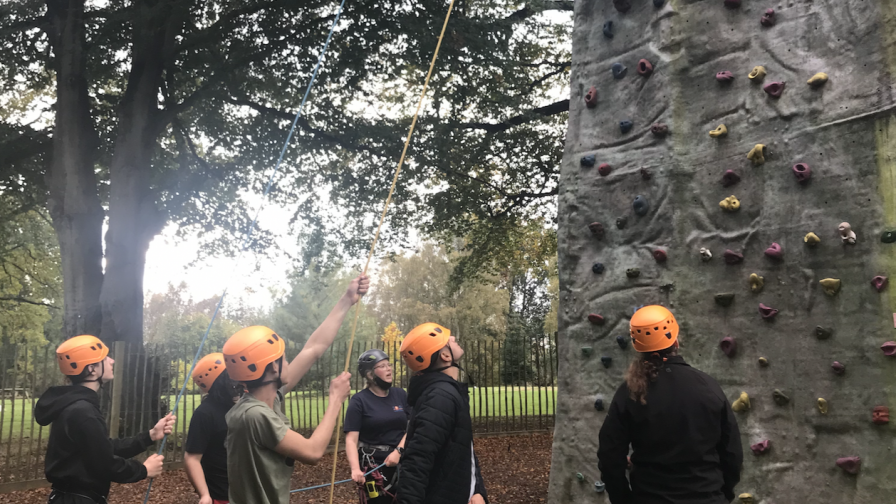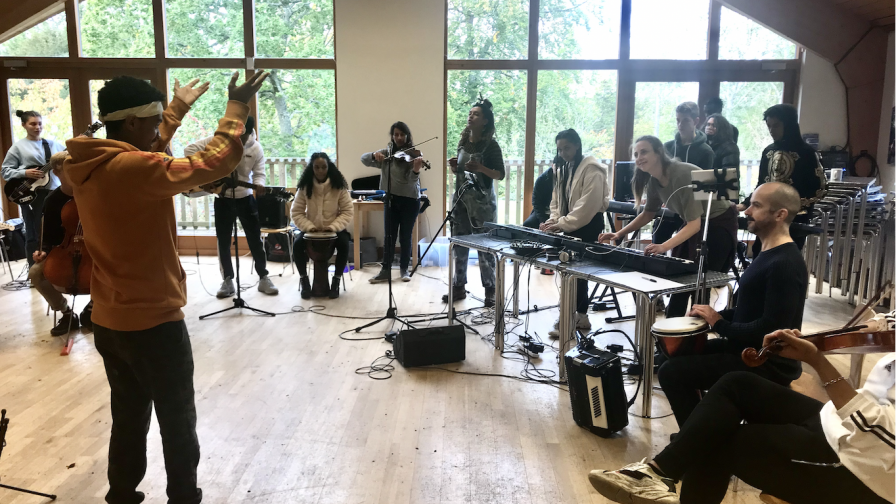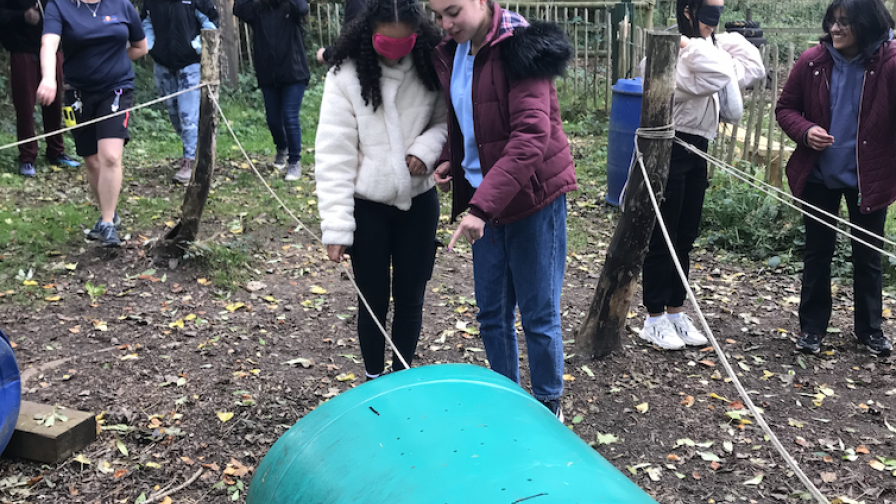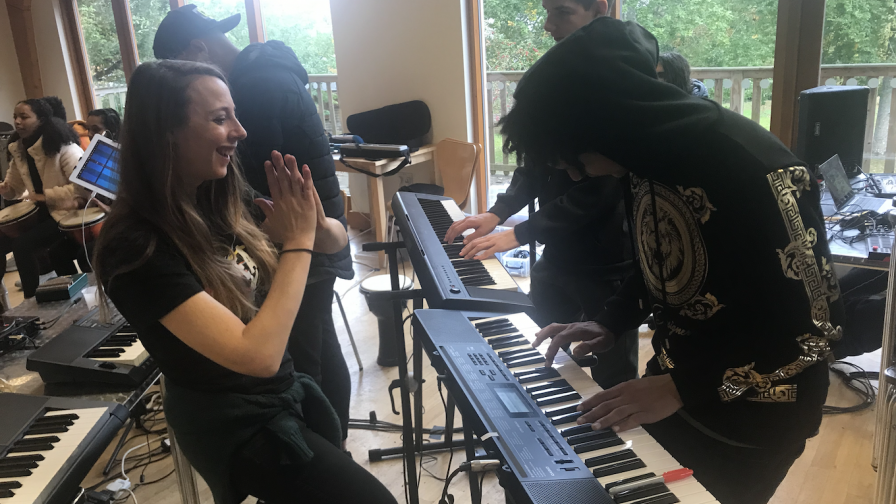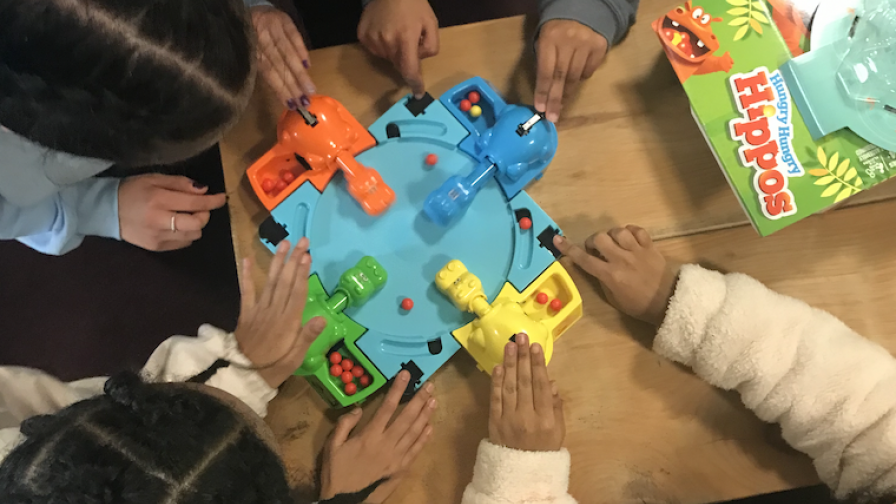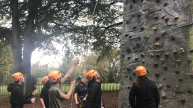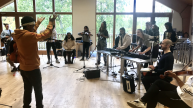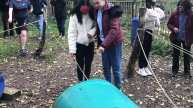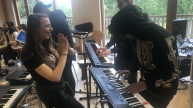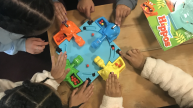Music Connects
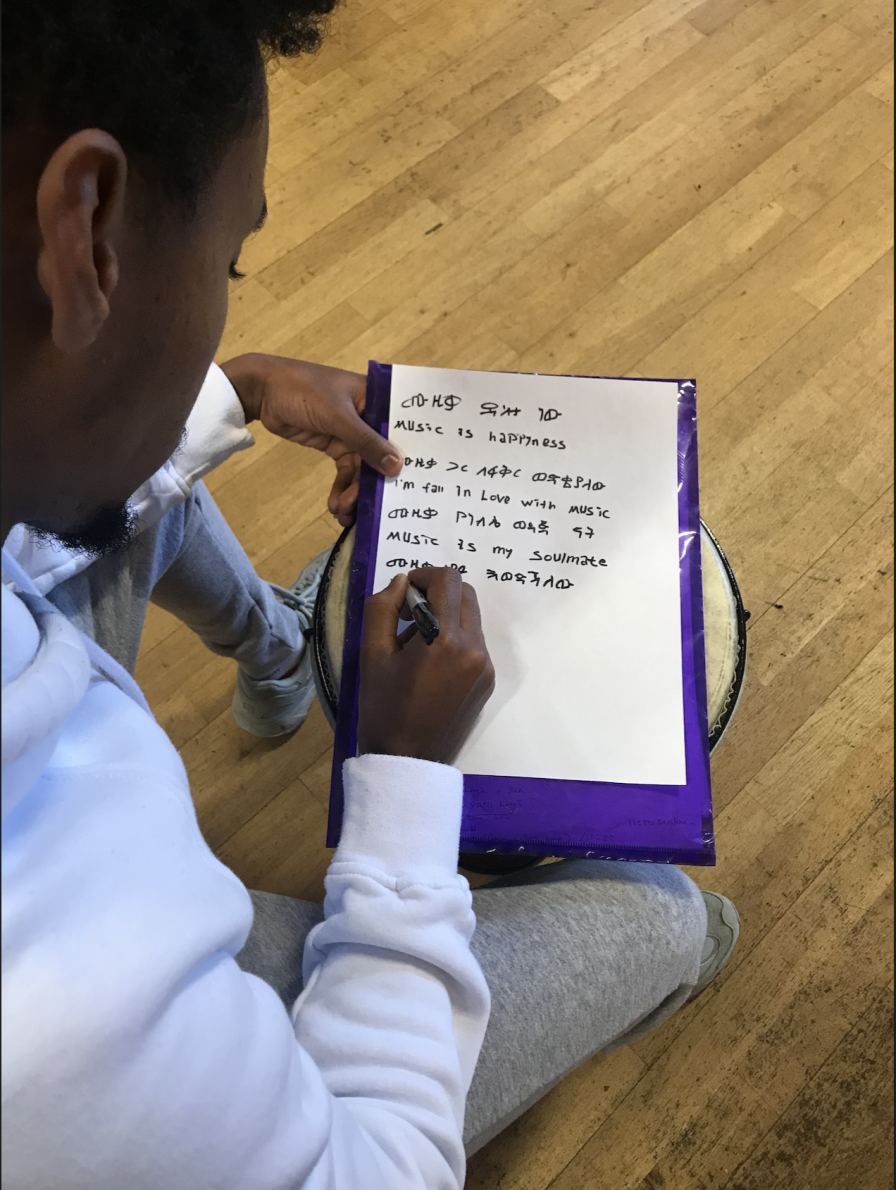
The power of music to unite people over a backdrop of difference is no secret. And as one of our core aims at Big Leaf is to create bridges between communities who otherwise rarely meet, music as the channel for this seemed an obvious choice.
In March this year, we recorded our first song Remember Who You Are. The track was written and rehearsed on Zoom during lockdown by young musicians of different linguistic and cultural backgrounds, all living in Surrey. Their talent, their willingness to embrace music of all styles and their courage to go beyond what was comfortable for them impressed us beyond words. 'Remember Who You Are' showed us just what can be done when you take a group of diverse young people and hand them the reins.
This October, building on this, we hosted our first Music Connects residential, in collaboration with our good friends at Surrey Arts.
We were delighted to be awarded a grant from Youth Music in order to continue this idea. This time, we wanted to ensure that everyone would be able to attend every session and not be prevented by sudden changes in living arrangements or lack of transport options. And so we decided this time to hold a residential hosted by the wonderful Surrey Outdoor Learning and Development in the Surrey Hills.
This meant we were asking 14 young people, half of whom were born and raised in the UK and half of whom had only recently arrived, to live together for three days, and navigate the differences of language, cultural and life experience in order to write a song, to be recorded the following week.
At the beginning it was daunting. On arrival the group were silent, clearly apprehensive and unsure of why we were there - understandably too. And so we went straight to some outdoor activities designed to break the ice.
Leading each other blindfolded around a low ropes course, paired into different nationalities with strict instructions only to use their native language, the shyness soon turned to shouts of laughter. Yells of “Stop!”, “Turn right” and “Well done” came in Amharic, Arabic, Sorani and Tigrinya.
K said, with some surprise, “They are kind to me and try to speak my language”. H was delighted - “I’m saying “Stop” in Amharic and “Well done” in Kurdish!”. And later, finding all the girls locked enthusiastically into a game of Hungry Hippos, with H determinedly learning her numbers from her highly amused teachers, we could see how the divisions were beginning to fade.
By the afternoon, it felt like everyone knew each other. And it was this that underlined what we had wanted to say with this project. If you give people the space to get to know those they would otherwise never have met, good things can come of it. And there’s nothing like living together for three days on the top of a hill to create that space..
Of course, from the outside, a music project in such a diverse group could look one-sided. Much of it was done in English. Our Surrey young people were already accomplished instrumentalists - brilliant musicians with plenty of formal training and experience behind them. Our Big Leaf participants have not had these opportunities. One participant shrewdly noticed that one half of the group turned up with suitcases, and the other sharing small backpacks, or carrier bags.
But it was not a one way street. The Big Leaf group brought with them a genuine love of music and a wealth of songs, melodies and beats from different parts of the world, meaning that the young people from Surrey had to work with new instruments, different music styles, and utterly unfamiliar pitch and rhythm. As our great friend Darren Abrahams from The Human Hive always says, “It's 'with' not 'for'”. And here no one was working for anyone else; this was not a project so that English people could “help refugees” - it was level ground, on which we could all work with each other with one shared objective. And for displaced young people especially, this level ground with their peers can be hard to find.
But it was in place here. By day 3, people were singing, playing and dancing together like they’d known each other forever, and meeting in the ACM studio just two days later felt like a reunion. Interestingly, in feedback sessions afterwards, everyone mentioned that they had made new friends.
The song can be heard through the SoundCloud link. They are singing in English and Sorani with some Arabic and Amharic thrown in.
But we would like to finish with an observation from H, speaking with so much passion and conviction alongside our team at the Music Mark National Conference in December.
“I’ve been in lots of musical groups and there are so many opportunities out there for me, with my background in Western music. But what about other styles of music? If I wanted to play non-Western music, where can I go? If someone doesn’t play the flute or violin, but something else, what is out there for them? Because music should be for everyone. Everyone.”
We are so proud of the song that this brilliant group of young people has created, performed and recorded. It was wonderful to see the confidence with which they jumped up to play and sing at our Christmas party. And we are utterly excited to see what the next stage of Music Connects will bring in 2022.
With our heartfelt thanks to our tutor team for their leadership, compassion and creativity; to Surrey Arts, SOLD and ACM for your ongoing empathy, understanding and kindness; especially to Youth Music for making this possible, and above all to every one of the brilliant young people who took part. Thank you for your generosity, your sensitivity and your love of shared music.
The future of this world seems so much better for having you in it.

